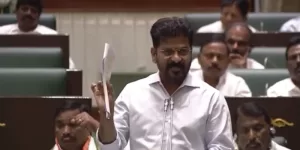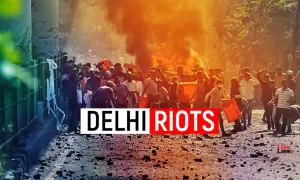[A statement by the first tribal President of India, ‘Droupadi was not my original name’, brings back painful historical memories to Adivasi communities, the earliest inhabitants of this country. The anguish she expressed has been shared by many Adivasis, like the poet here.]
We Adivasis have our own ways of naming new-borns. We have borrowed from rivers, forests, their land, days of the week, or a particular date, or even from their ancestors. But, with time, our right to name ourselves the way we wanted was snatched away from us. Organised religion and conversions took away this unique right. Our names kept changing, and were reassigned. When Adivasi children went to modern schools in the city, organised religion altered our names. The certificates they received were in the new names forced on us. This is how our languages, our names, our culture and histories got slaughtered. There is a conspiracy in naming. Today we are in search of that land that is connected to our roots, our history. We are in search of those days and dates marked with our existence.
Whose name is this?
I was born on Somwar, Monday,
so, I was called Somra.
I was born on Mangalwar, Tuesday,
so, I am Mangal, Mangar, or Mangara.
I was born on Bruhaspatiwar, Thursday,
that is why I was called Birsa.
I stood on the chest of time
like the days of the week,
but they came and they changed my name.
They destroyed those days and dates
that marked my being.
Now I am either Ramesh, Naresh, or Mahesh
or Albert, Gilbert, Alfred.
I have names from every one of those lands
whose soil hasn’t made me,
whose history is not my history.
I keep searching for my history
inside theirs and I realise
that each corner of this world,
in each place, I am the one being slaughtered
and each killing has a beautiful name.
(Translated from Hindi by Pratishtha Pandya. Jacinta Kerketta of the Oraon Adivasi community is an independent writer, poet and reporter from rural Jharkhand. Courtesy: People’s Archive of Rural India (PARI). PARI is both a living journal and an archive. It generates and hosts reporting on the countryside that is current and contemporary, while also creating a database of already published stories, reports, videos and audios from as many sources as possible.)




